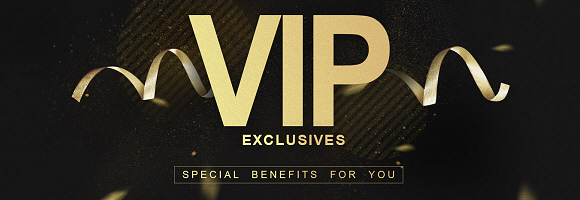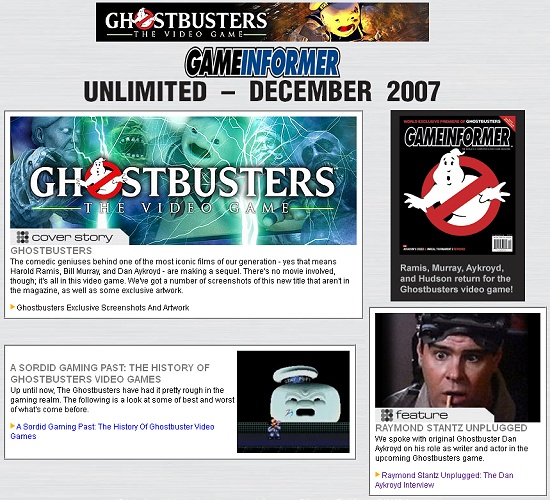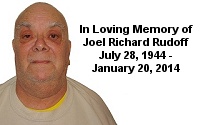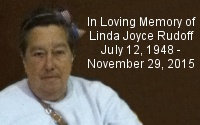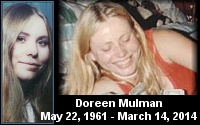| « Ghostbusters: The Video Game - Original Story Scripts & Transcripts | [VIP] Ghostbusters II Deleted Scene Photo Scan - Peter & Ray Talk To Rudy » |
Ghostbusters: The Video Game - Game Informer's Dan Aykroyd Interview (December 2007)
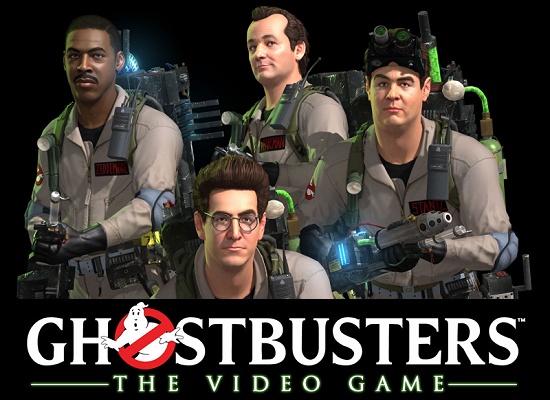
In late 2007, Game Informer magazine presented the exclusive first look at Ghostbusters: The Video Game in their December 2007 issue, which was released in November 2007. If you bought the physical magazine from a GameStop store, you'd get to read an article all about the game, with exclusive photos and quotes from Dan Aykroyd. If you were a GameStop member, you had the extra benefit of being granted access to the Game Informer website where more exclusive content awaited. Since this extra content was locked behind a paywall, the Internet Archive couldn't archive it... but I did! Read on to find out more...
The only part of the site that the Internet Archive could save is the December 2007 issue mini-site, which just lists all of the exclusive content. If you click on the links to each item, even today, all you will see is a paywall.
For Ghostbusters, the site provided these three items:
- Ghostbusters Exclusive Screenshots And Artwork - The comedic geniuses behind one of the most iconic films of our generation - yes that means Harold Ramis, Bill Murray, and Dan Aykroyd - are making a sequel. There's no movie involved, though; it's all in this video game. We've got a number of screenshots of this new title that aren't in the magazine, as well as some exclusive artwork.
- A Sordid Gaming Past: The History Of Ghostbuster Video Games - Up until now, The Ghostbusters have had it pretty rough in the gaming realm. The following is a look at some of best and worst of what's come before.
- Raymond Stantz Unplugged: The Dan Aykroyd Interview - We spoke with original Ghostbuster Dan Aykroyd on his role as writer and actor in the upcoming Ghostbusters game.
The second item was simply a quick list of five previous Ghostbusters video games: Ghostbusters (1984), The Real Ghostbusters (1987), Ghostbusters II (1990), New Ghostbusters II (1990), and Ghostbusters (1990). It's not something that was really worth saving, but I did, so click here for a screenshot of the entire page in a new window.
It's this third item that I will be re-publishing today. It's Game Informer's full interview with Dan Aykroyd that was quoted in their article about the game. This interview is quite important to the history of the game, as it is the source of Dan's quote about the game being "essentially the third movie". Since Game Informer never made this interview available to the general public, and it doesn't appear to be on their site anymore in any form, I present an "as is" copy and paste of the interview text.
Posted: 11/16/2007 at 12:00 PM
We spoke with original Ghostbuster Dan Aykroyd on his role as writer and actor in the upcoming Ghostbusters game.
Game Informer: How does it feel to come back to the Ghostbuster universe after all this time? Do you still get a lot of people coming up to you on the street asking about another movie?
Dan Aykroyd: Well, practically and realistically, I've been telling people it's very doubtful that there's going to be a third movie. But now that I've seen the work on the video game, I've watched it progress, my rap now to people is, "This is essentially the third movie." And it's better than the third movie because it lasts longer, there's more development of the characters, there's more of a need for story layers. The guys have done a great job putting story layers in there that I can begin to embellish and work with. And I tell people this: "If you have an appetite for the third movie, then the video game is it." And I really do believe that at this point, from having seen what they've done there.
Naturally, I've never been distant from the concept because people ask me all of the time about it. People bring me the reissued GB 1 and 2 on the disc to sign when I'm doing other business ventures. They always bring me Ghostbusters stuff. Somebody's always telling me that their kid is into it now and these are kids now 3, 4, 5 years old. A whole new generation is discovering it. It's not like I ever sort of put it in my past and locked the vault and walked away. It's always there as an active part of my creative life.
GI: You and Harold Ramis wrote the first two movie scripts together, and I imagine it's quite exciting to work with him on this new game script.
Aykroyd: Yes, he's by far my favorite collaborator. He's very intelligent, and, of course, does not believe in ghosts or the paranormal or supernatural in any way, shape or form. So it's fun to work with him because he's a complete skeptic. I am a believer and he is a skeptic, so the two of us make a great team.
GI: What was it about the game that got you interested?
Aykroyd: Well, it was just the idea of having a game based upon the characters and the premise. And then when we started to see the first renderings of how they were going to do it, what excited me was the look directly references the first movie. We're going back to a look that people know, the familiarity of the characters in terms of the way they behave and the way they look and the way they talk and the adversaries, because I think the first movie was really the best in the form and to have it depicted and not trying something new is the proper way to go. It almost has a classic kind of feel to it, which really works in terms of an animated and computer-generated piece of entertainment. Some of the games today are almost too, you know, there's no sort of sense of real characters in them. It's almost too processed. I don't know. Too computerized. These figures they walk and talk like real people. I think people are going to respond to it.
GI: You mentioned earlier that Harold is the skeptic and you're the believer. Can you talk about your interest in the paranormal?
Aykroyd: Yeah, it goes back to my great grandfather Sam Aykroyd, he was a dentist in Kingston, Ontario, Canada. And he, like many at that time, was interested in psychic research. Oliver Lodge, the great physicist and scientist, Arthur Conan Doyle -- there were many physicians and scientists who were trying to figure out what's happening here in terms of the survival hypothesis.
Ghost stories and stories of people channeling entities from the other side, people generating ectoplasm, levitating, speaking in trans-medium voices that seem to speak from the other side or the beyond. This intrigued scientists, physicians and researchers at the turn of the century, and there was a very strong movement called spiritualism, which today survives in many senses.
We've got John Edwards on television, this new girl Lisa Williams. Check out your networks today. I think five shows deal with seeing ghosts, dealing with ghosts, and underwriting and underlying the concept that we do survive after death. This was a quest that my great grandfather was not alone in, and all of the journals from the British Society for Psychical Research and the American counterpart, the American Society for Psychical Research, which has probably the most extensive library on the paranormal and the supernatural in the world. They're in New York on West 77th street. Just magazines and stuff that my father had around the house. I grew up with this kind of stuff.
Hearing about the séances that went on in the old farm house in the time of my grandfather, who was the son of Sam Aykroyd, and my dad, who was my grandfather's son. It goes really to four generations of Aykroyds interested in this. And I read an article in the ASPR about quantum physics and parapsychology and "ding," that's when it hit me. "Wouldn't it be great to do an old-style ghost comedy?" But treat it in a way that serious researchers are treating the material today.
You know, Duke University had a paranormal program for the longest time, and in Brooklyn there was something called the Maimonides Dream Lab, and they were doing some really exciting research. I don't think there's a paranormal division in a university today in America.
GI: That sounds kind of like Raymond Stanz. Are you excited to get back into the character of Ray? Will it be strange doing it in a voiceover studio rather than running around with a proton pack?
Aykroyd: It's going to be fun. It is, as you say, there's a genuine enthusiasm that I feel personally and that I did infuse in the character. It's going to be great to go back and do that. I'm quite excited about it because the Ray character is a little bit over the top almost. Very enthusiastic, very vocal, almost sort of adolescent or childlike in the pursuit of all this stuff, and it's going to be great to be able to play that again. Not to worry too much about constraining the character. It's not a constrained character. It's the kind of character that will be able to shout and scream. So that's one of the elements I'm very excited about is participating firsthand again and getting to do that enthusiastic and unbridled character again.
GI: Speaking of voiceovers, we understand that the team is trying to round up the principle cast members from the original movies. Are you interested in the possibility of getting the team back together?
Aykroyd: I am. I hope we'll be able to work together and do some group work in the studio. I'll probably end up working with Harold and maybe Annie Potts and Bill Atherton. I don't know whether I'll do my sessions with [Bill] Murray or he'll do them with me. That would be the dream, because we'd get to go back to something that we both enjoyed working on in its original sense. And hopefully Harold and I will be strong on it and be able to share the studio together. Obviously, that's more exciting and will probably produce better quality if you have another actor there to play off than just being alone with the director. But I'll do the job however they present it to me, and it's going to be great.
GI: Kind of going back to the writing side, how is it different writing for an interactive medium like video games versus writing for a movie?
Aykroyd: Certainly the volume aspect is one that's daunting. We've got to come up with perhaps a little more variety in terms of expression and more volume in terms of dialogue. You know, a movie is only an hour and a half, whereas video play gets into the 10-hour stretches. So we probably are going to be retooling some terms, reinventing some terms, maybe originating new ideas, new concepts, new terms to address the aspect of the scientific research and the discipline, and then also the reactions to the various threats that we're seeing.
We're going to be definitely marching over new territory here, and the differences are quite obvious because of the time involved in the play and the screenplay or the play in the game. There's a significant difference there because of the volume and the time that will impact how we approach the writing. And it's going to be challenging, but it's all going to be fun. Make up new words, new ideas, new concepts, new screams, new moans, new yells, new attitudes, some crankiness, some fear, some tenderness, some abject panic, hysteria. And Harold's sort of rational personality coming through. It'll be a nice blend of work again.
GI: With the game being set in 1991 (two years after Ghostbusters 2), how did you decide on this time period and where do you think the characters are at this point?
Aykroyd: It was obvious if we are going with the premise that this is the third story that it would have to advance in time somewhat. And I think the characters run a more successful business, it's accepted as matter of fact in the world that this is a company that exists and you call when there's trouble from the paranormal, supernatural realm. Just the fact that it's an accepted part of American life I think is a great element in the premise.
Just the idea that these characters are now older, more experienced, perhaps a little more jaded, more tough, with maybe not as compassionate a view of the spirits that they used to have because these spirits come in and crash into our dimension. They're a pestilence. You have to balance the extermination view with the compassion view so that will be a whole attitude that wasn't there in the first two movies. We don't want to treat them mean, but we want to get rid of them because we've got clients who can't have them around. It's really that difference between elimination and understanding of the departed soul. I think that'll play in the writing and the performance and the attitude and the tone of the third piece.
GI: Is it strange seeing a version of yourself 20 years ago running around in the game?
Aykroyd: I like that because they were able to lose all of the weight I haven't been able to in the video game. I think, again, it's what people remember. It's what people are watching today, that first and second movie. So it's better that we hearken back to those original characters than try to depict the way Harold and I look today or the way we are today. It's almost a suspended moment in time, and I think the audiences will relate totally to the characters as they play because they're familiar with them in the form that they were seeing in the first two movies.
GI: There have been a few Ghostbusters games in the past. Did you have the chance to play them when they came out and what did you think of them?
Aykroyd: Yeah, they were done on more primitive platforms than are available today in more primitive formats. Obviously, you've seen what these guys are doing here. This takes it right into the 21st century of video-game technology and the concept of having an adult format and an adolescent format playing across all platforms really I don't think it could have come out maybe four or five years ago. And just the sophistication of the platforms, the uniformity almost that you can have a game that plays on all three, the Xbox, the PlayStation and the Wii. When the Genesis game came out, that option wasn't there. And these other games aren't as sharp-looking -- they're pretty primitive if you look at them.
GI: Do you play many video games these days?
Aykroyd: I play with younger people usually. It's not something I sit down and do myself at this stage. Of course, I've played the Dungeons & Dragons, and House of the Dead, and I'm excited about sitting down to play some Halo because this is really, again, new cutting-edge technology, great story writing and great gameplay. That seems to have caught on fire around the world, and I'd like to familiarize myself with that -- playing with a younger, more agile, expert player who can teach me some things.
GI: Outside of this Ghostbusters project what other creative endeavors can we look forward to?
Aykroyd: We're developing House of Blues out to more North American cities and then taking it around the world. So I'll be spending time basically opening them and doing publicity at the time of the opening. Doing pre-construction launch publicity, then investor relations and partnership relations, and after the places are built I'll come publicize them and bring my band to play.
The other component of my life includes music and that's with Jim Belushi, the blood brother of Jake Blues. We have an act called the Blues Brothers Formal Classic Review and we do great songs and have wonderful musicians and we play casinos and private events and some charity events occasionally. We have quite a busy concert schedule coming up.
(Originally published at:
www.gameinformer.com/Magazine/Insider/Articles/Article/200712/A07.1115.1755.45331.htm)
No feedback yet
Leave a comment
Search (Articles Only)
Categories



(Ghostbusters Amazon Store)
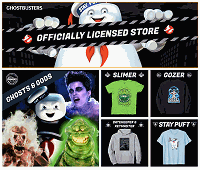
Please be aware that as an Amazon Associate, I earn a very tiny commission from purchases made though the Amazon links on this site.
|
COMMUNITY LINKS
NEWS • Ghostbusters Wiki • GB News • GB Fans • Ghostbusters Mania • GB Reboot Facebook • Proton Charging News Archive FORUMS • GB Fans • EctoZone OFFICIAL • Ghost Corps Facebook • Ghostbusters Facebook • Ghostbusters YouTube • Ghostbusters.com |

( MY COMPARISON REVIEW )
( AVOID SHIPPINGEASY/STAMPS.COM )
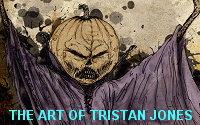
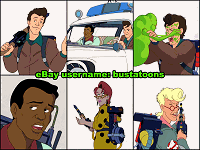
U.S. eBay (Ghostbusters stuff)
U.K. eBay (Ghostbusters stuff)


